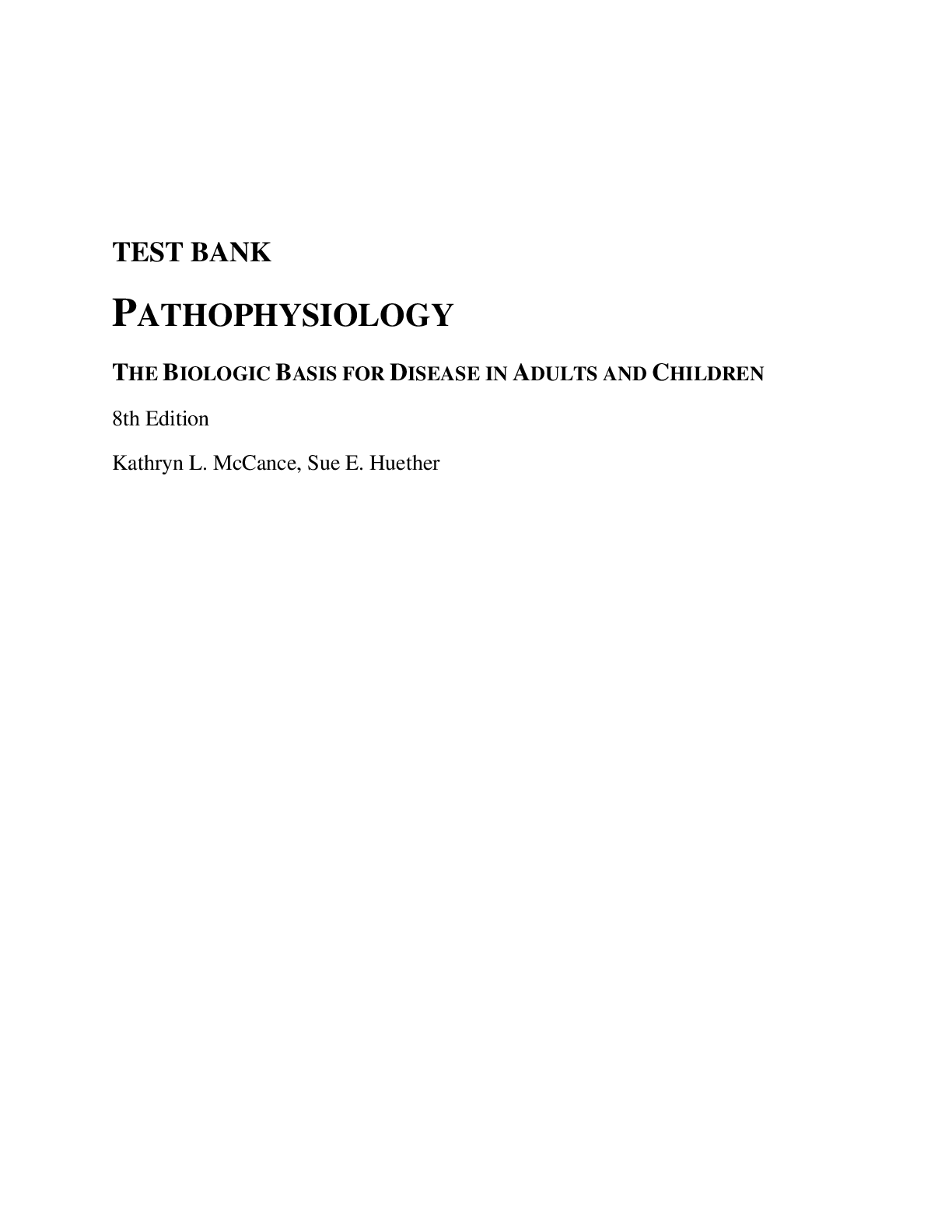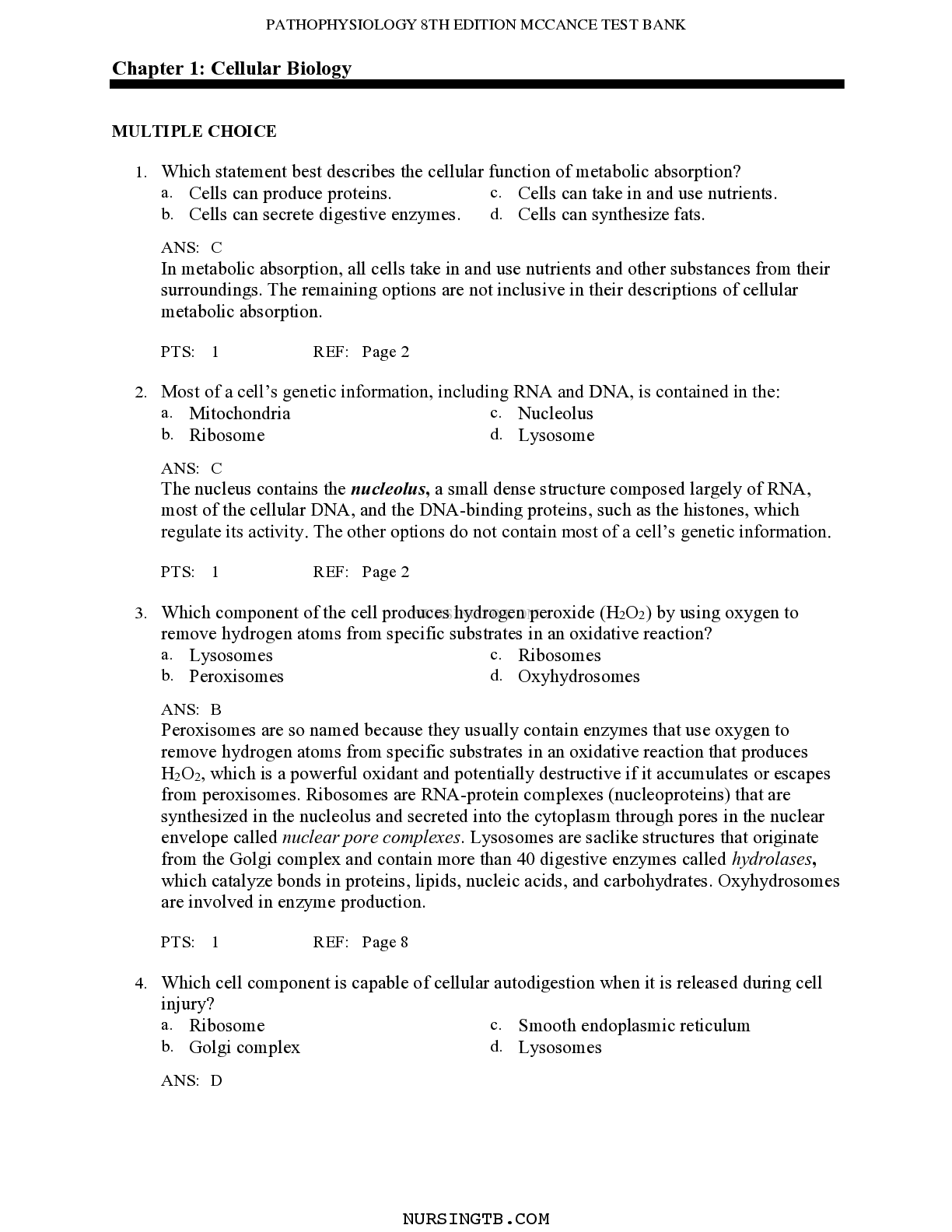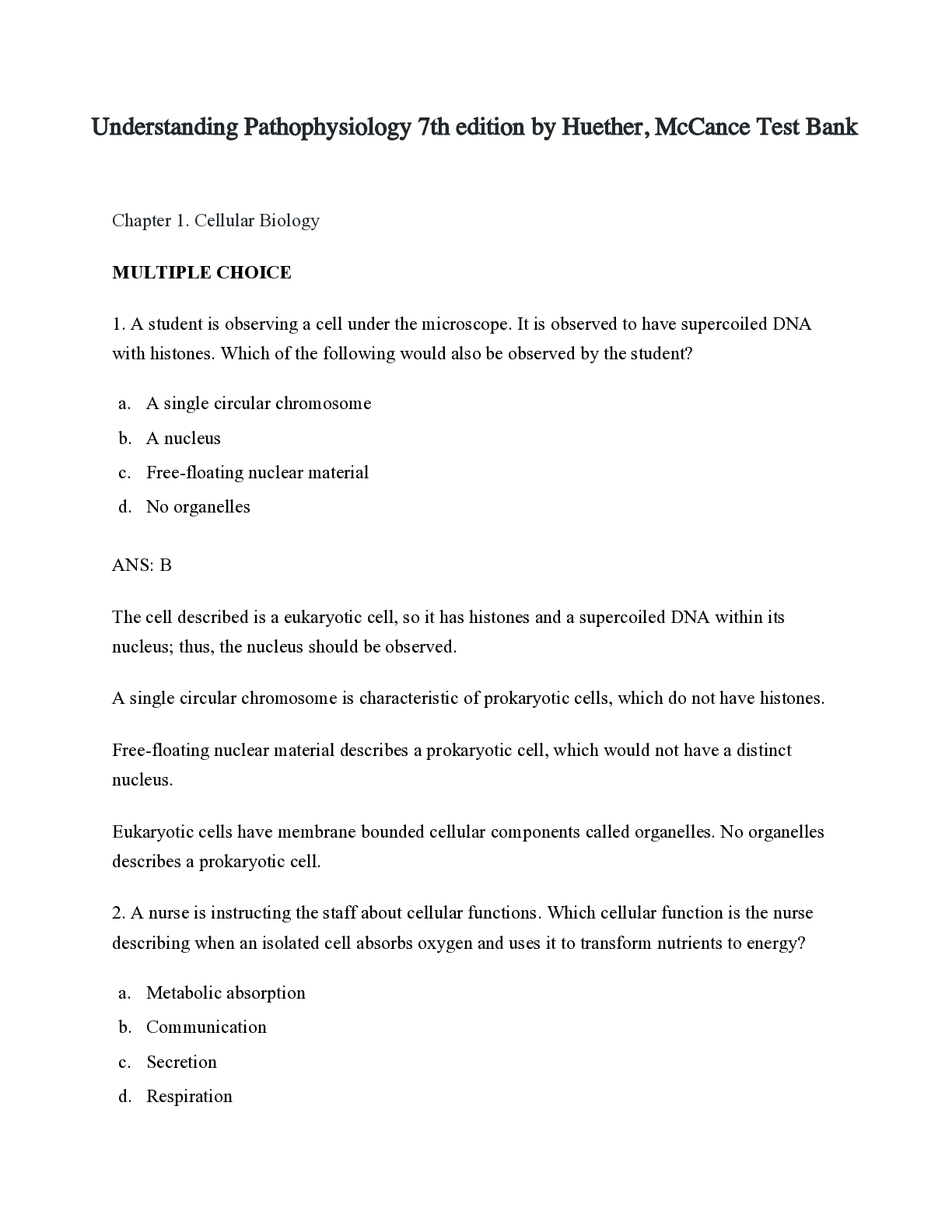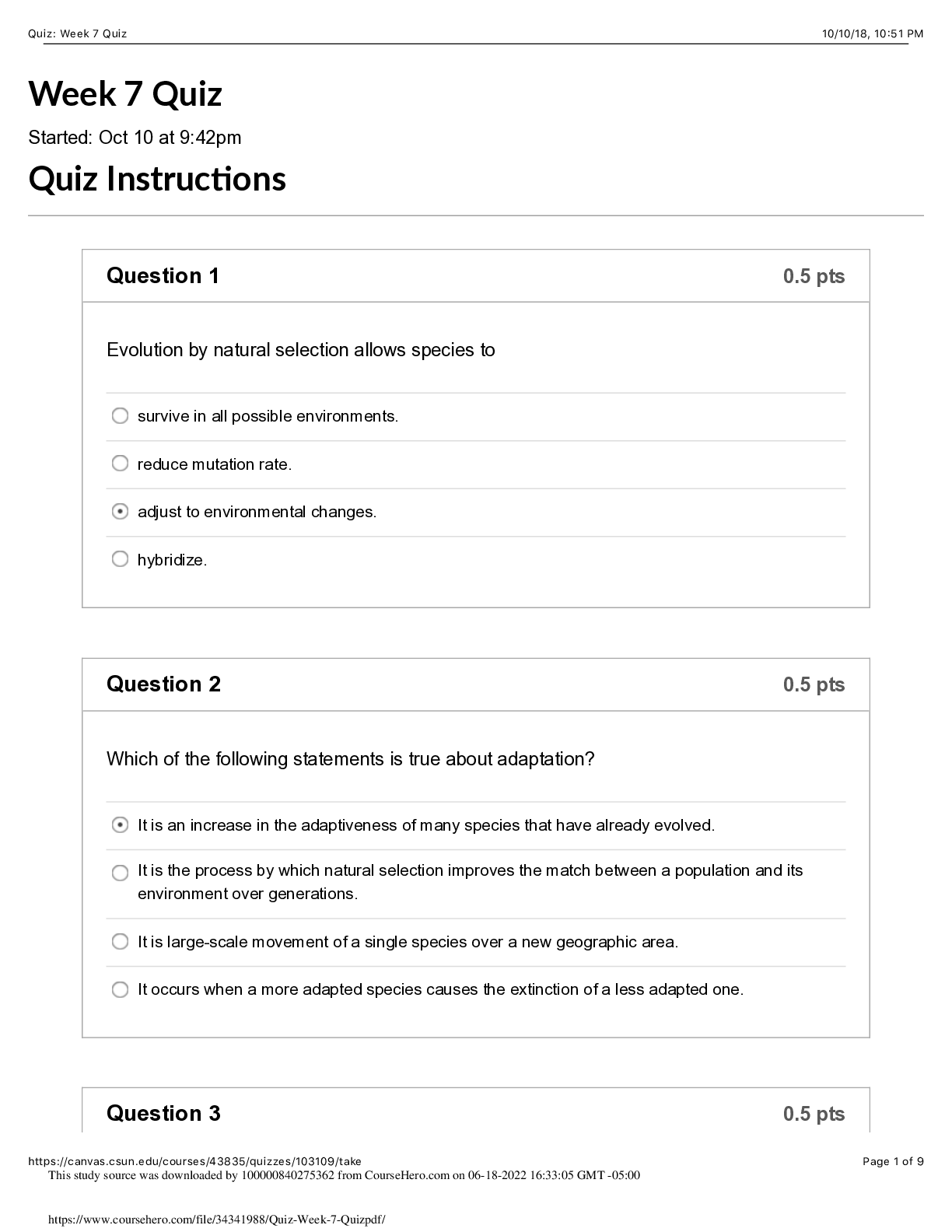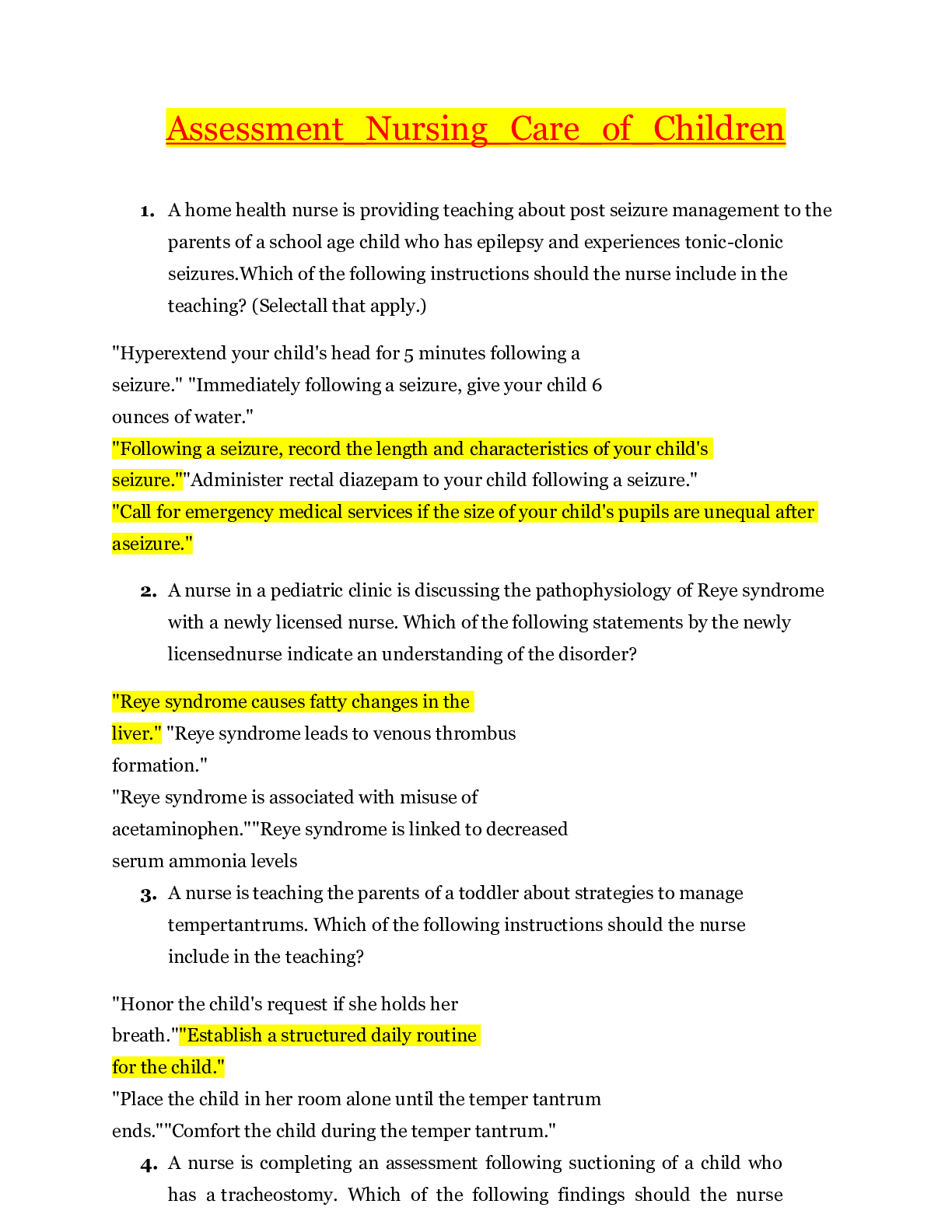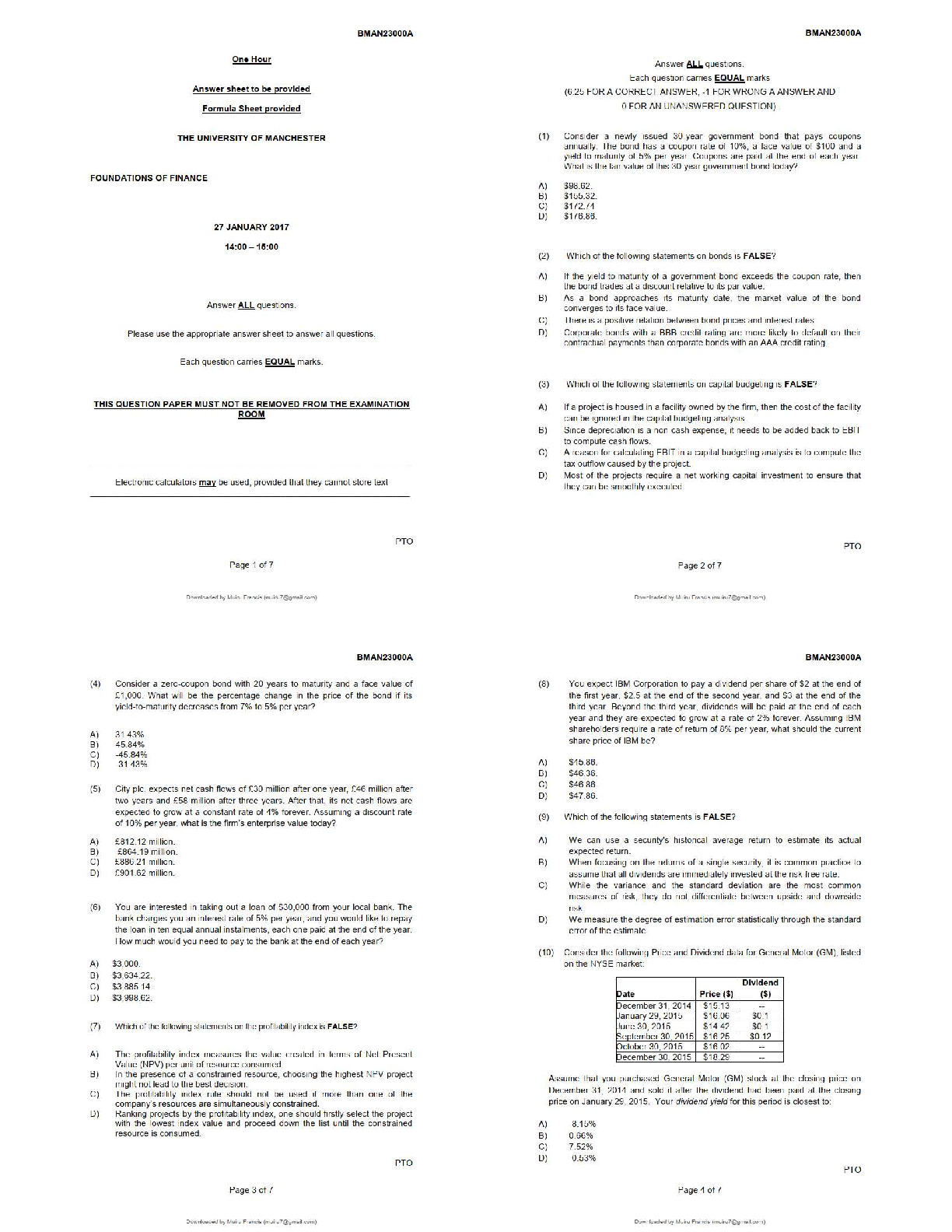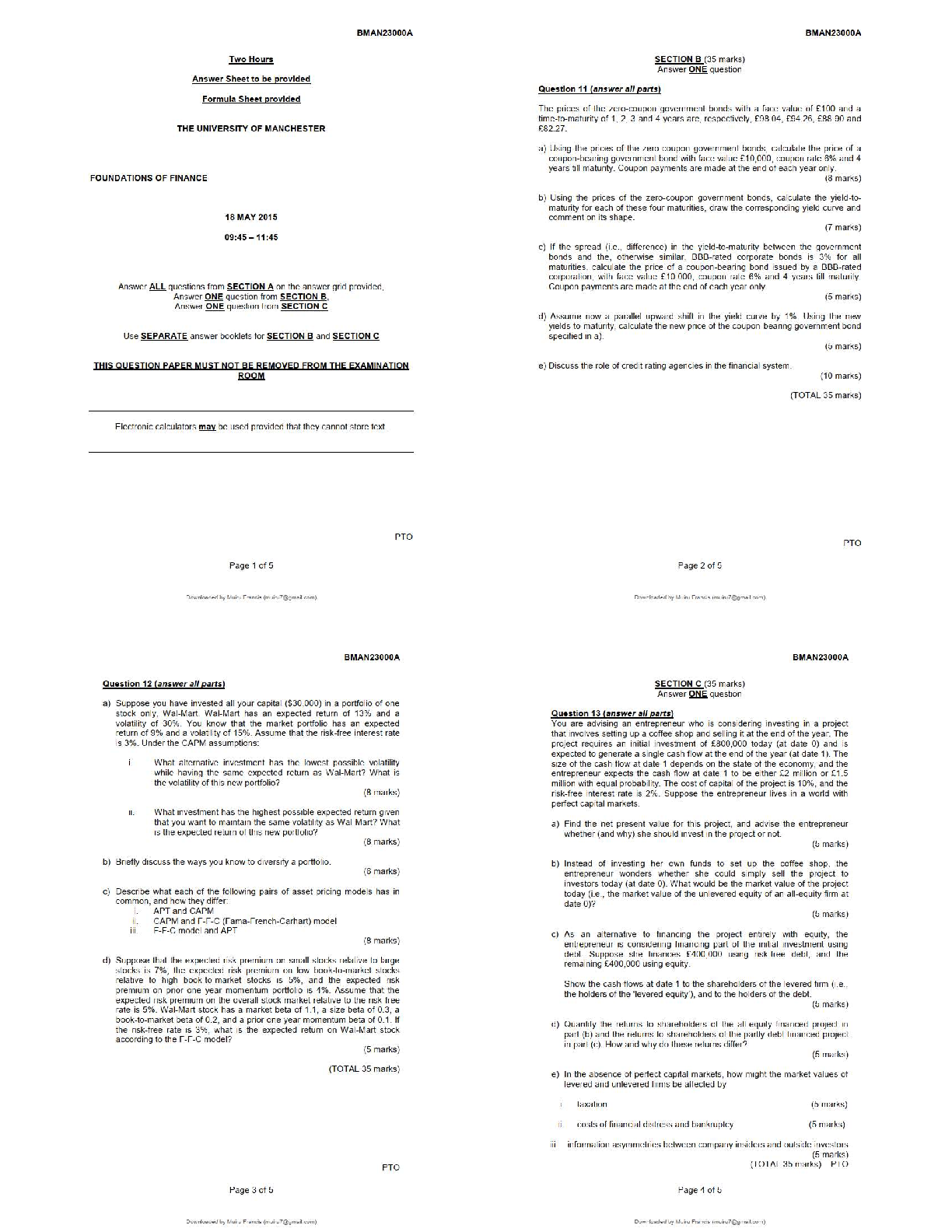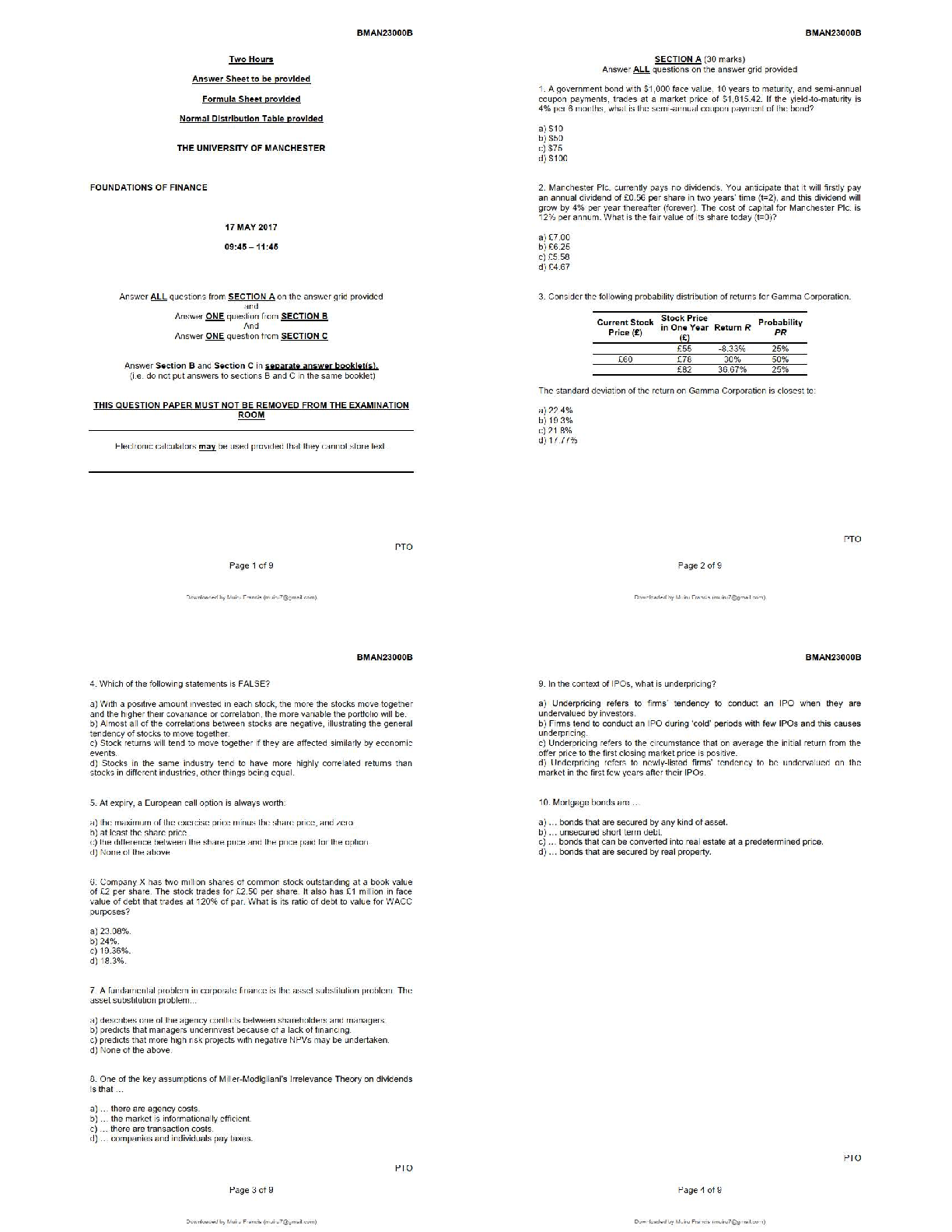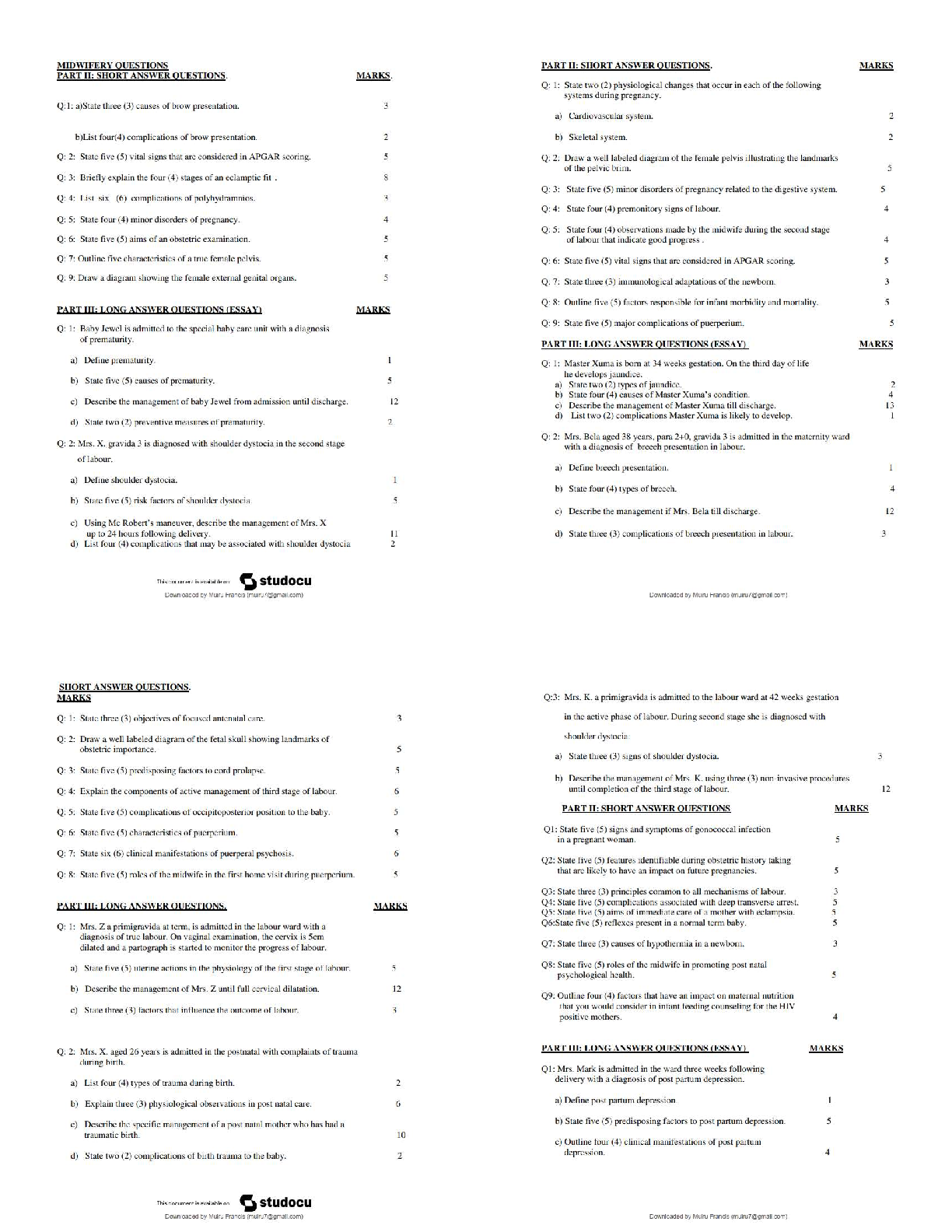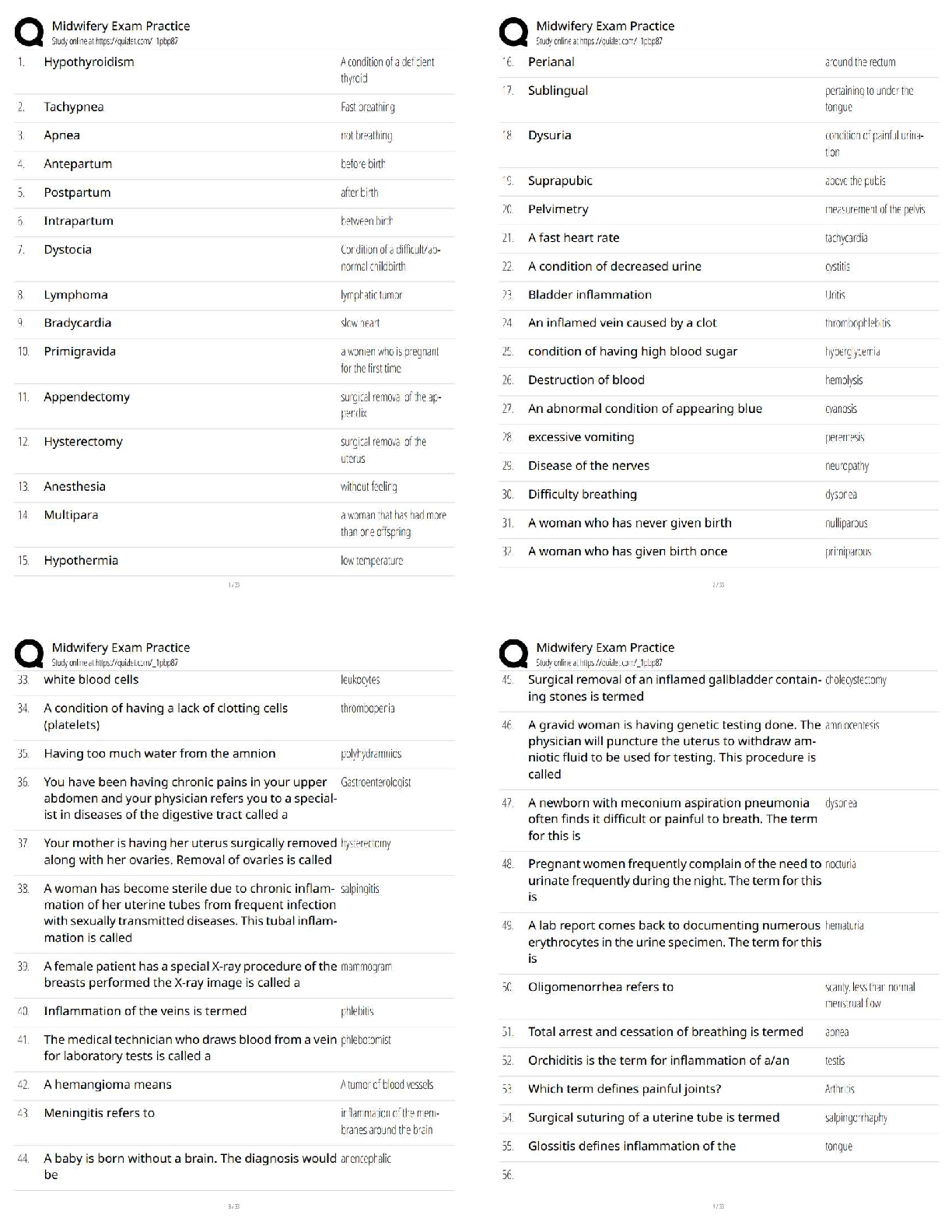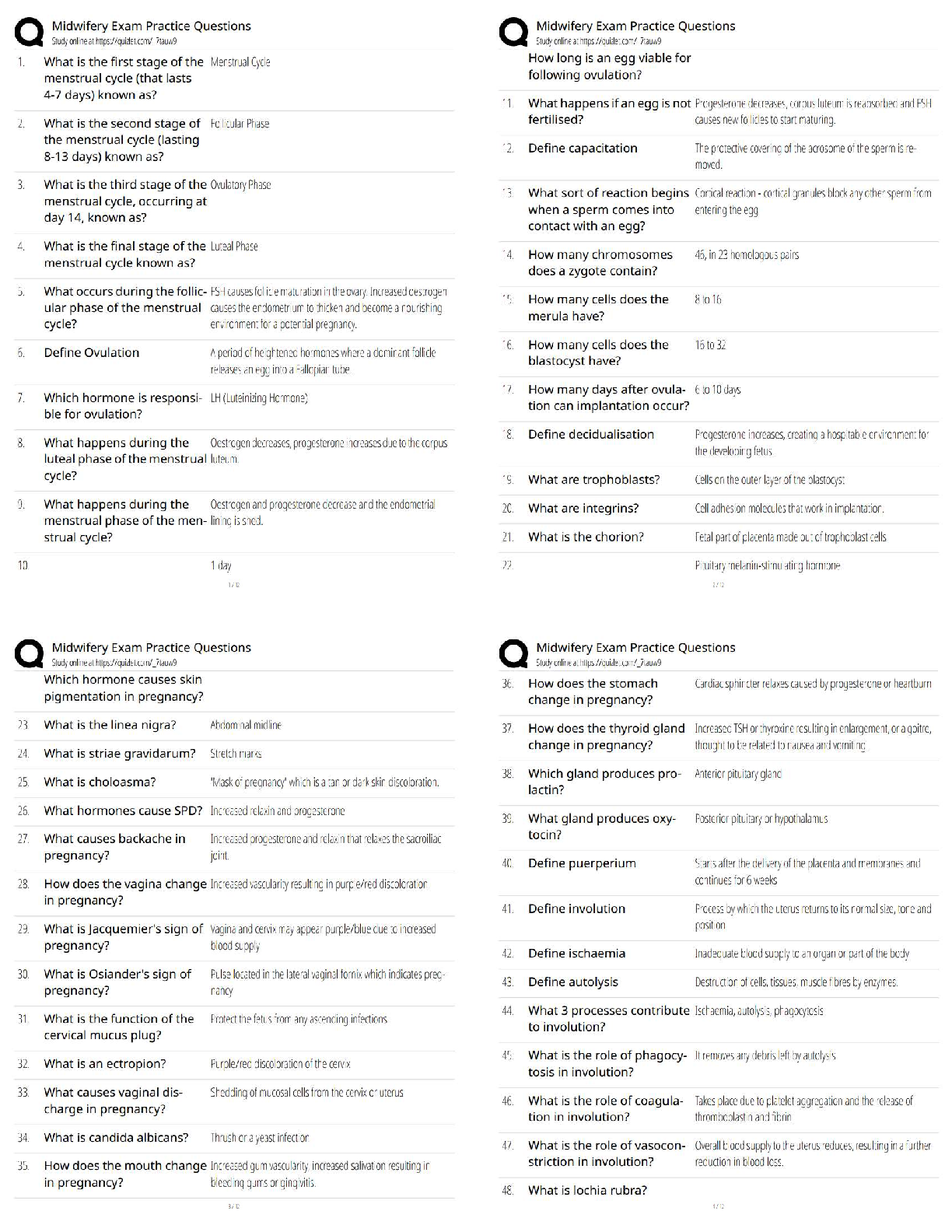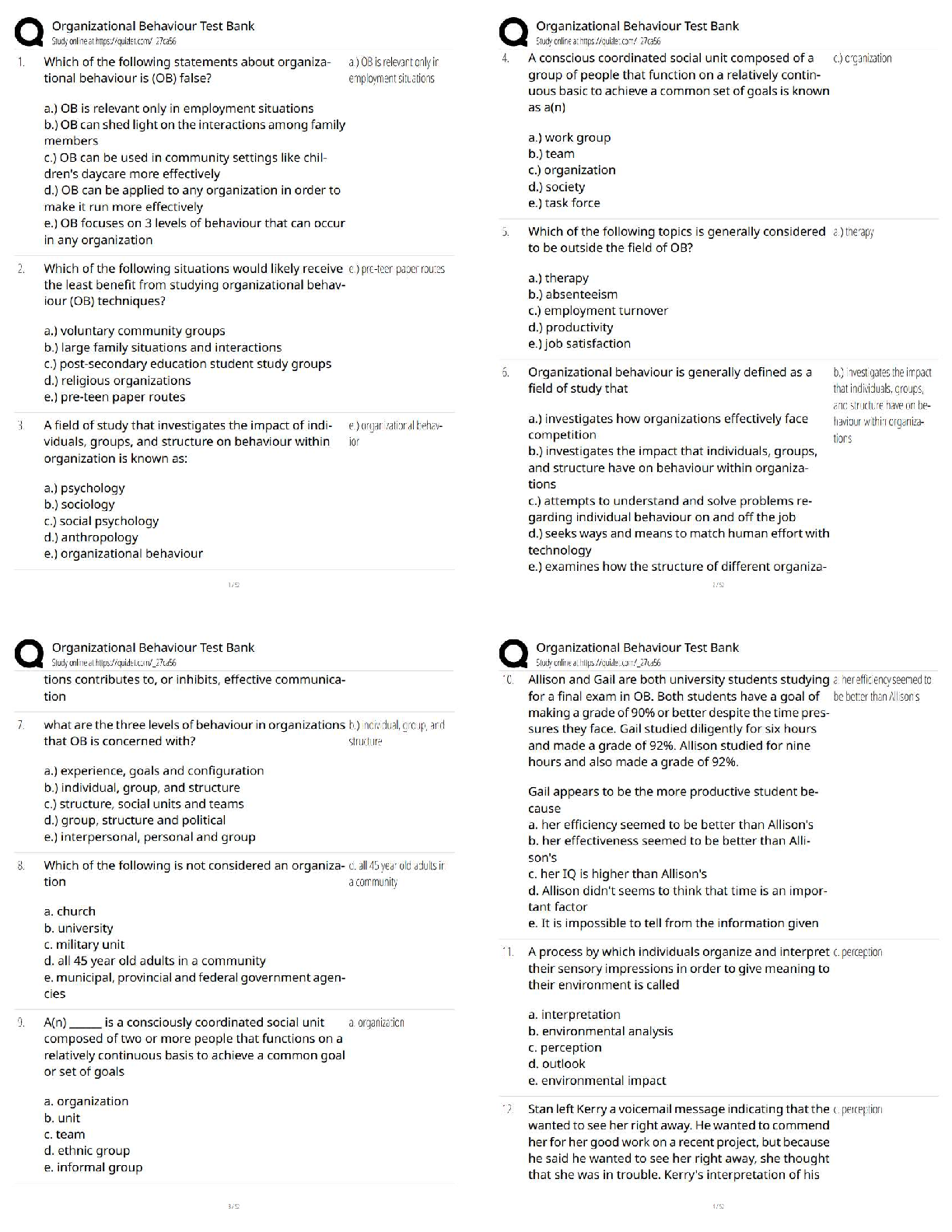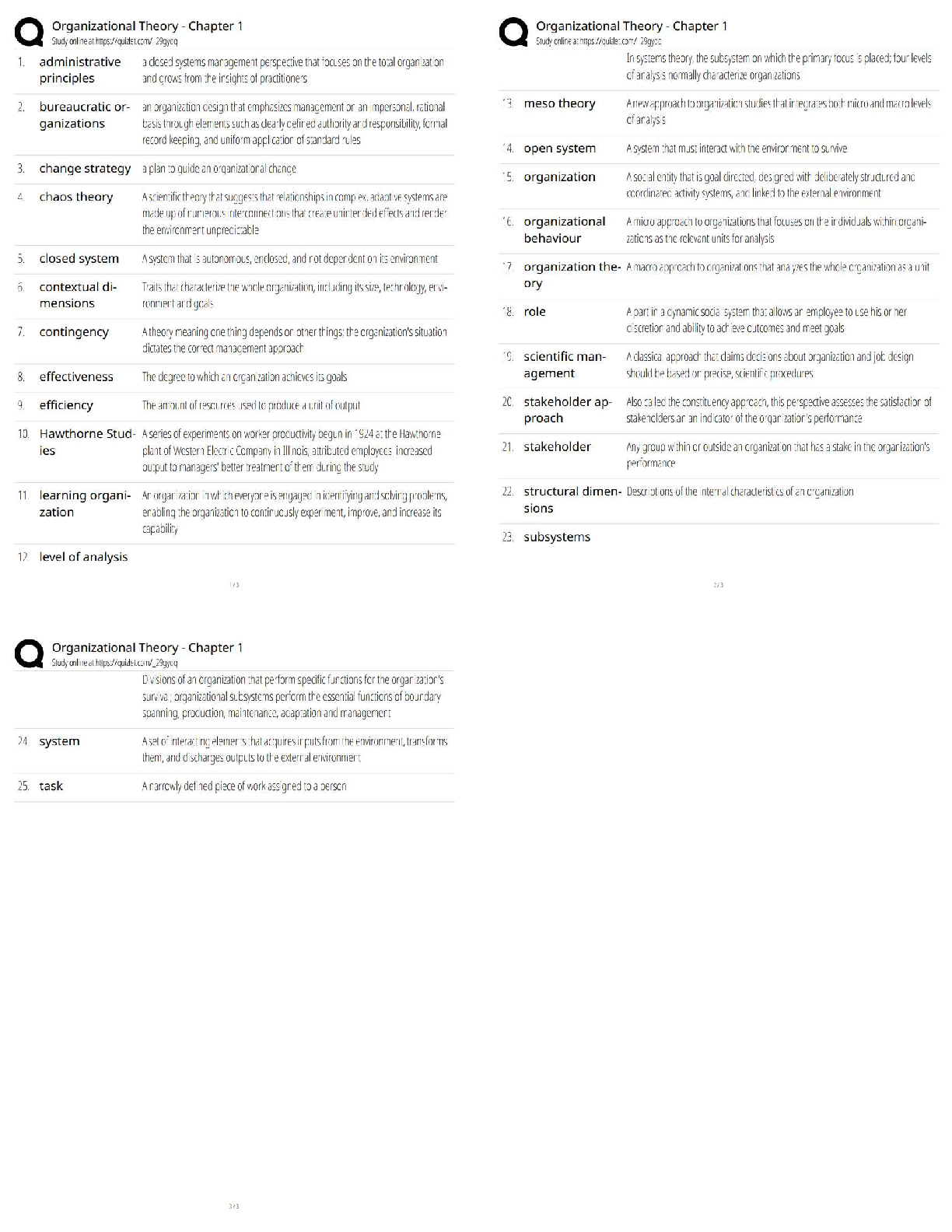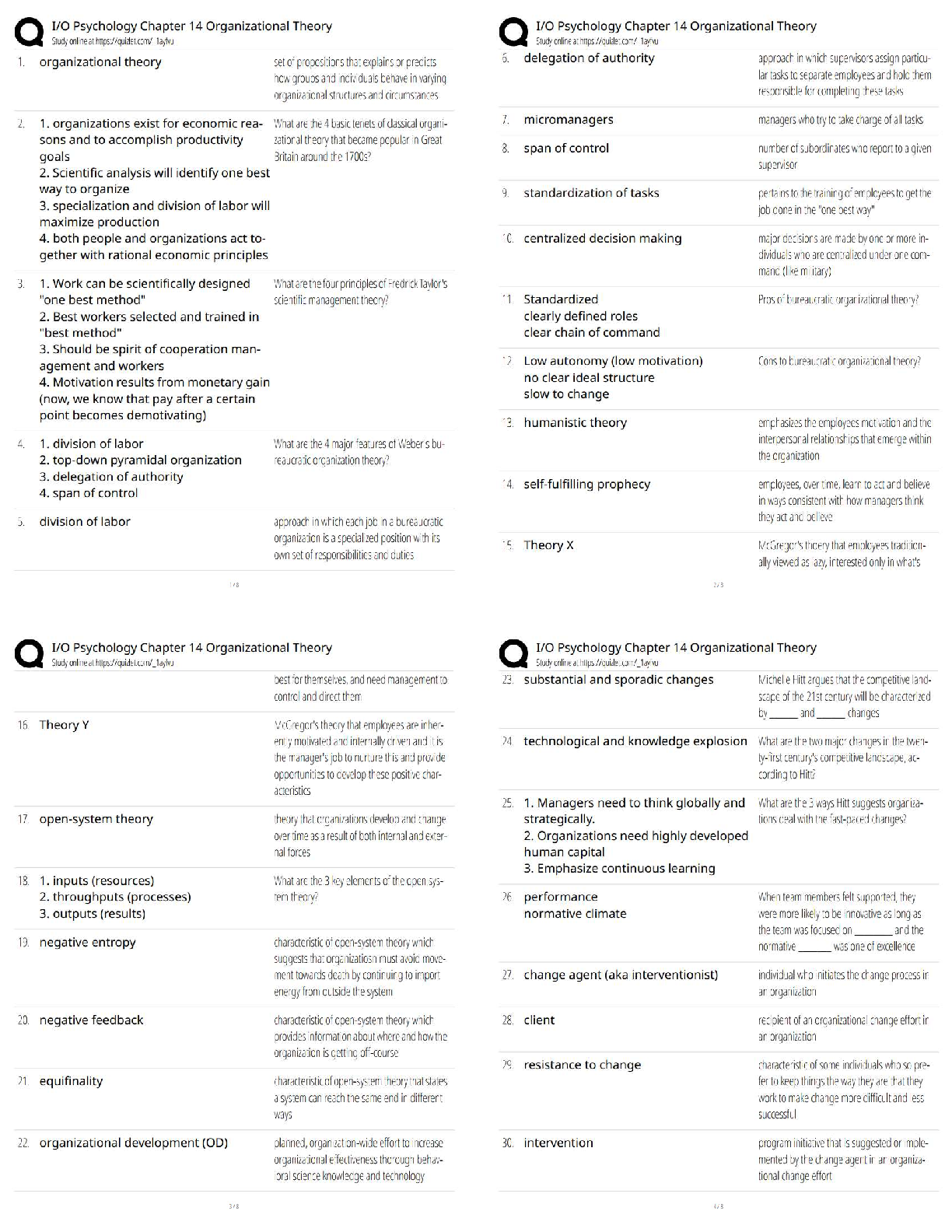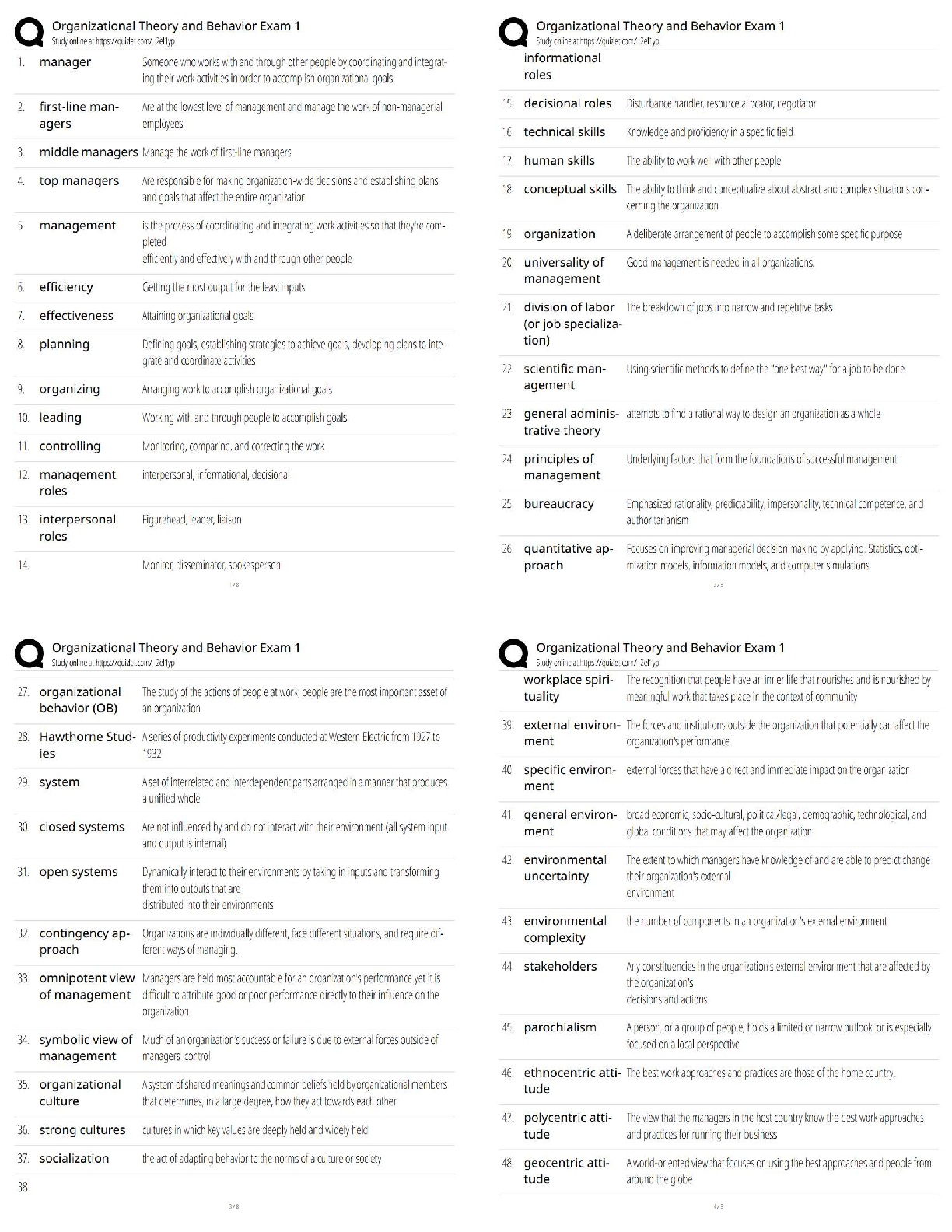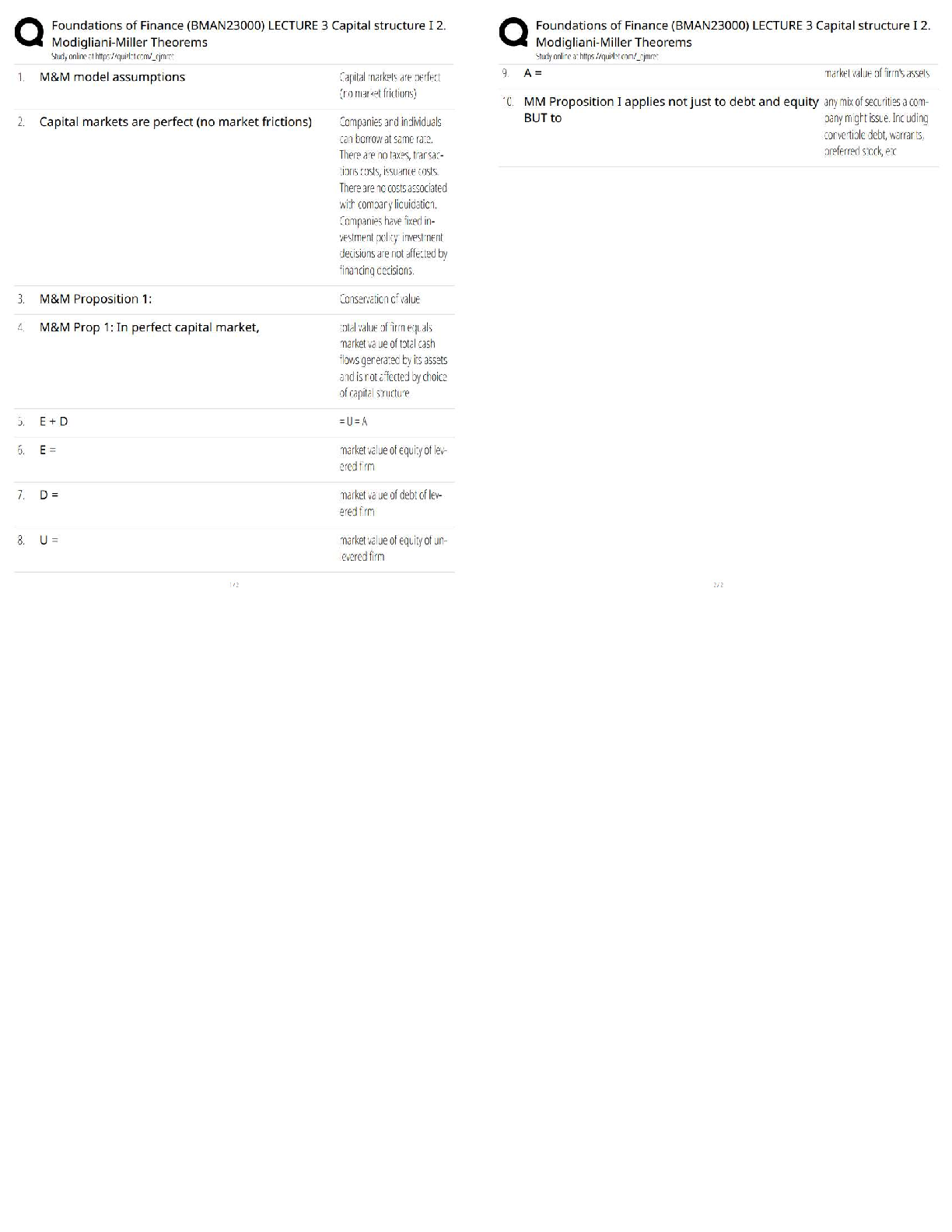Health Care > QUESTIONS & ANSWERS > Physical Assessment Quiz 1 (All)
Physical Assessment Quiz 1
Document Content and Description Below
1. Question : The nurse is performing a physical assessment on a newly admitted patient. An example of objective information obtained during the physical assessment includes the Student Answer: pa ... tient’s history of allergies. patient’s use of medications at home. last menstrual period one month ago. 2 5 cm scar present on the right lower forearm. Instructor Explanation: Objective data are the patient’s record, laboratory studies, and information that the health professional observes by inspecting, percussing, palpating, and auscultating during the physical examination. The other responses reflect subjective data. Points Received: 2 of 2 Comments: Question 2.Question : Barriers to incorporating evidence-based practice (EBP) include Student Answer: nurses’ lack of research skills in evaluating quality of research studies. lack of significant research studies. insufficient clinical skills of nurses. inadequate physical assessment skills. Instructor Explanation: As individuals, nurses lack research skills in evaluating quality of research studies, are isolated from other colleagues who are knowledgeable in research, and lack time to go to the library to read research. The other responses are not considered barriers. Points Received: 2 of 2 Comments: Question 3.Question : The nurse has implemented several planned interventions to address the nursing diagnosis of acute pain. Which would be the next appropriate action? Student Answer: Establish priorities. Identify expected outcomes. Evaluate the individual’s condition and compare actual outcomes with expected outcomes. Interpret data and then identify clusters of cues and make inferences. Instructor Explanation: Evaluation is the next step after the implementation phase of the nursing process. During this step, the nurse should evaluate the individual’s condition and compare actual outcomes with expected outcomes. Points Received: 2 of 2 Comments: Question 4.Question : Which of these would be formulated by a nurse using diagnostic reasoning? Student Answer: Nursing diagnosis Medical diagnosis Diagnostic hypothesis Diagnostic assessment Instructor Explanation: Diagnostic reasoning calls for the nurse to formulate a diagnostic hypothesis; the nursing process calls for a nursing diagnosis. Points Received: 2 of 2 Comments: Question 5.Question : The nurse asks, “I would like to ask you some questions about your health and your usual daily activities so that we can better plan your stay here.” This question is found at the _____ phase of the interview process. Student Answer: summary closing body opening or introduction Instructor Explanation: When gathering a complete history, the nurse should give the reason for the interview during the opening or introduction of the interview, not during or at the end of the interview. Points Received: 2 of 2 Comments: Question 6.Question : A female nurse is interviewing a male patient who is near the same age as the nurse. During the interview, the patient makes an overtly sexual comment. The nurse’s best reaction would be Student Answer: “Stop that immediately!” “Oh, you are too funny. Let’s keep going with the interview.” “Do you really think I would be interested?” “It makes me uncomfortable when you talk that way. Please stop.” Instructor Explanation: The nurse’s response must make it clear that she is a health professional who can best care for the person by maintaining a professional relationship. At the same time, the nurse should communicate that he or she accepts the person and understands the person’s need to be self-assertive but that sexual advances cannot be tolerated. Points Received: 2 of 2 Comments: Question 7.Question : The nurse makes this comment to a patient: “I know it may be hard, but you should do what the doctor ordered because she is the expert in this field.” Which statement is correct about the nurse’s comment? Student Answer: This comment is inappropriate because it shows the nurse’s bias. This comment is appropriate because members of the healthcare team are experts in the area of patient care. This type of comment promotes dependency and inferiority on the part of the patient and is best avoided in an interview situation. At times, it is necessary to use authority statements when dealing with patients, especially when they are undecided about an issue. Instructor Explanation: Using authority responses promotes dependency and inferiority. It is best to avoid using authority. Although the healthcare provider and patient do not have equal professional knowledge, both have equally worthy roles in the health process. The other statements are not correct. Points Received: 2 of 2 Comments: Question 8.Question : A patient has finished giving the nurse information about the reason he is seeking care. When reviewing the data, the nurse finds that some information about past hospitalizations is missing. At this point, which statement by the nurse would be most appropriate to gather these data? Student Answer: “Mr. Y., at your age, surely you have been hospitalized before!” “Mr. Y., I just need permission to get your medical records from County Medical.” “Mr. Y., you mentioned that you have been hospitalized on several occasions. Would you tell me more about that?” “Mr. Y., I just need to get some additional information about your past hospitalizations. When was the last time you were admitted for chest pain?” Instructor Explanation: The nurse should use direct questions after the person’s opening narrative to fill in any details he or she left out. The nurse also should use direct questions when specific facts are needed, such as when asking about past health problems or during the review of systems. Points Received: 2 of 2 Comments: Question 9.Question : The nurse is incorporating a person’s spiritual values into the health history. Which of these questions illustrates the “community” portion of the FICA questions? Student Answer: “Do you believe in God?” “Are you a part of any religious or spiritual congregation?” “Do you consider yourself to be a religious or spiritual person?” “How does your religious faith influence the way you think about your health?” [Show More]
Last updated: 2 years ago
Preview 1 out of 12 pages

Buy this document to get the full access instantly
Instant Download Access after purchase
Buy NowInstant download
We Accept:

Reviews( 0 )
$7.50
Can't find what you want? Try our AI powered Search
Document information
Connected school, study & course
About the document
Uploaded On
Jan 31, 2023
Number of pages
12
Written in
All
Additional information
This document has been written for:
Uploaded
Jan 31, 2023
Downloads
0
Views
98


